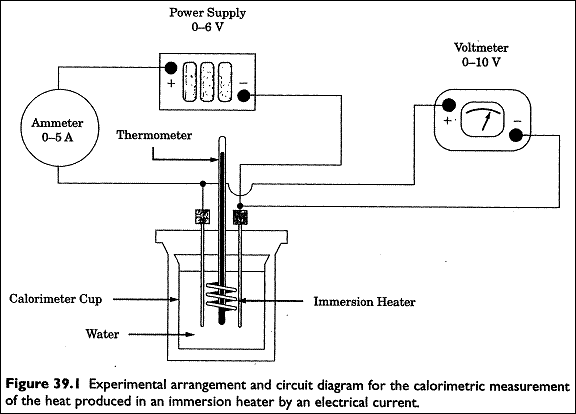The power P absorbed in an electrical resistor of resistance R, current I, and voltage V is given by P = I2R = V2/R = VI. Despite the fact that it has units of power, it is commonly referred to as joule heat. A given amount of electrical energy absorbed in the resistor (in units of joules) produces a fixed amount of heat (in units of calories). The constant ratio between the two has the value 4.184 J/cal and is numerically equivalent to the specific heat capacity of water. In this lab, an electric coil will be immersed in water in a calorimeter, and a known amount of electrical energy will be input to the coil. Measurements of the heat produced will be used to accomplish the following objectives:
1. Demonstrate that the rise in temperature of the system is proportional to the electrical energy input.
2. Determination of an experimental value for J and comparison of that value with the known value.
